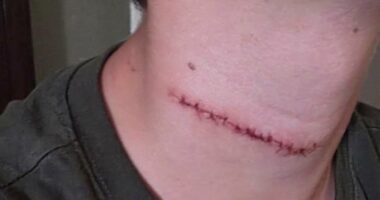Share this @internewscast.com

ILLINOIS (WCIA) — As the weather grows warmer, you might find yourself spending time in the water — and on a boat.
If your boat is parked at a marina, the Illinois State Fire Marshal’s Office advises several crucial electrical and carbon monoxide safety tips to prevent any unforeseen accidents.
When electrical systems at marinas leak current into the water, they can result in electrical shocks, posing risks such as injury, disability, or even fatalities. Additionally, boats themselves can contribute to electrical leakage.
Electrical safety tips:
- Never allow swimming near the boat, marina, or launching ramp (currents can flow into the water from the boat or the marina’s wiring)
- Be sure your boat is well maintained by having it inspected each year and getting a qualified marine electrician to do this job
- Ground fault circuit interrupters (GFCIs) and equipment leakage circuit interrupters (ELCIs) should be installed and tested monthly. Run tests to find out if electrical current is leaking from the boat
- Only use cords intended for marine use and never use household cords near water
- Know where your main breakers are on both the boat and the shore power source
Carbon Monoxide (CO) forms when fuels are not burned completely. Sources of CO include boat engines, gas generators, cooking ranges, and space and water heaters, all of which can be dangerous to both humans and animals. To ensure your safety while boating this summer, consider these precautions:
- Poorly tuned engines produce more CO, so keep your engine properly maintained
- Proper ventilation for engine and generator exhaust vents must be clear and pipes should be inspected for leaks.
- Get into fresh air right away and get help if you feel symptoms of CO poisoning. These include headache, fatigue, confusion, dizziness, nausea, or seizures. The symptoms can be similar to seasickness
- Do not swim near the boat’s exhaust vents (CO accumulates there)
- Install CO alarms inside your boat and test the CO alarms before each trip
- Choose a CO alarm that is listed by a qualified testing laboratory
- If the CO alarm sounds, move to a fresh air location right away
For more tips to stay safe and enjoy the summer, visit the Illinois State Fire Marshal’s Facebook page.











